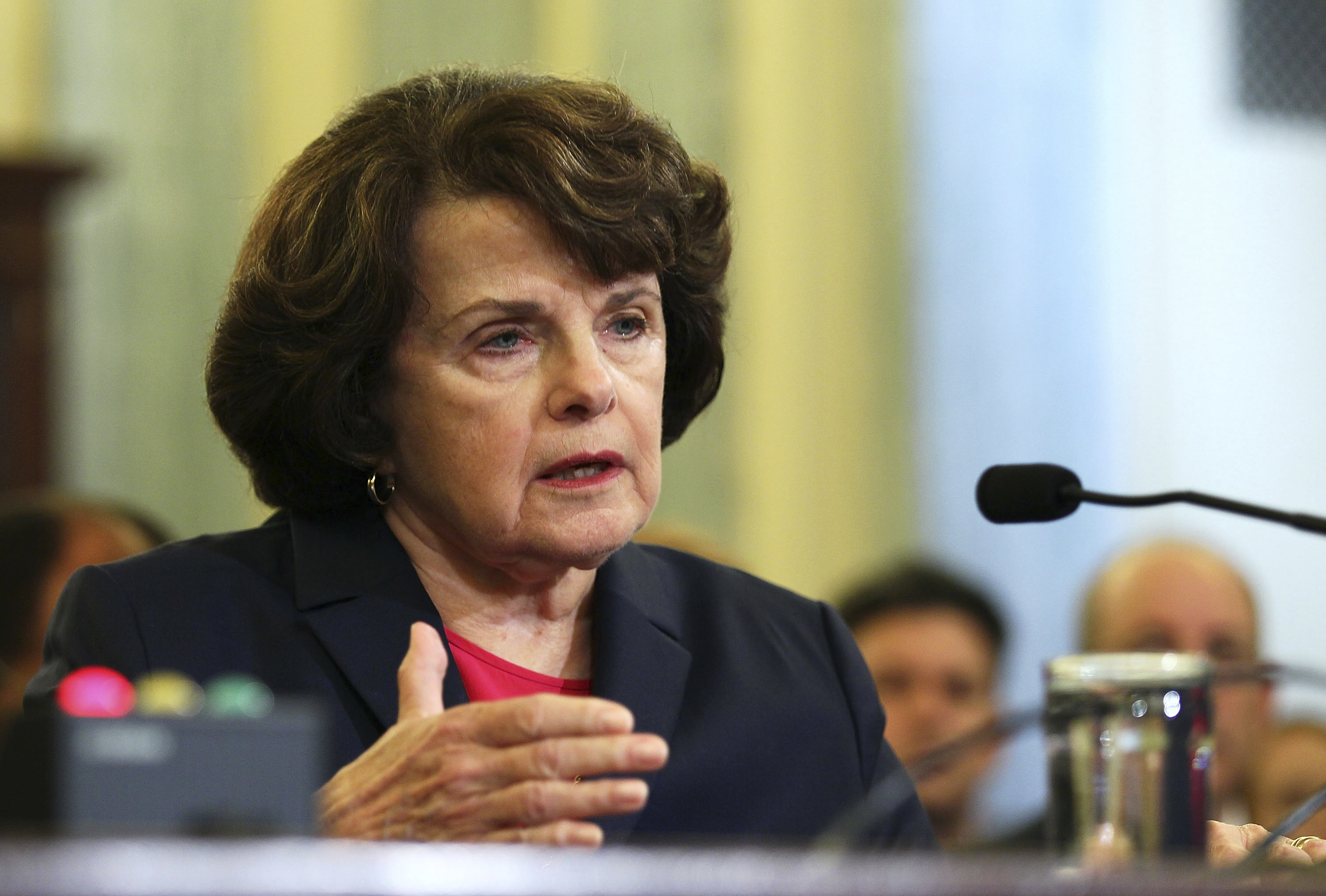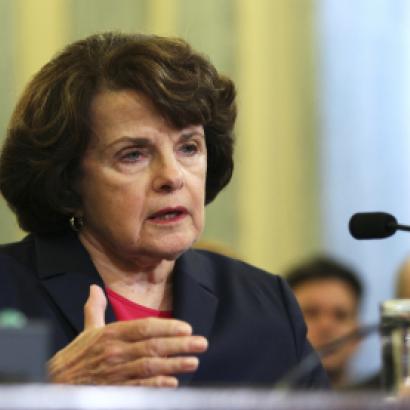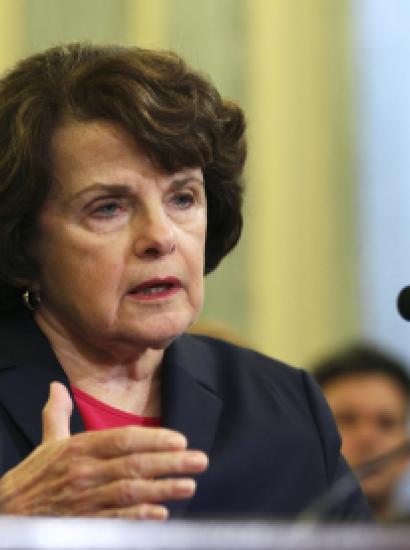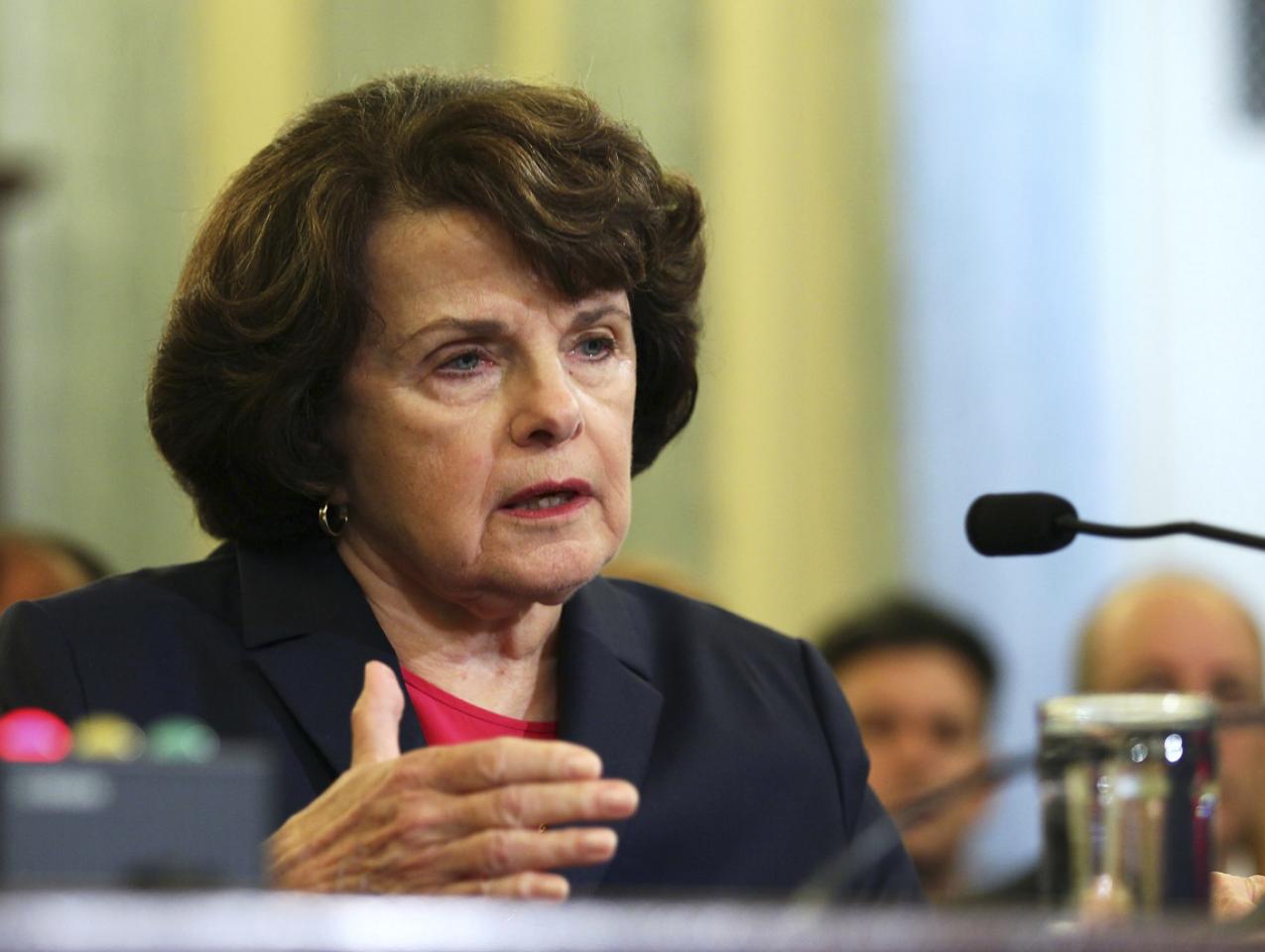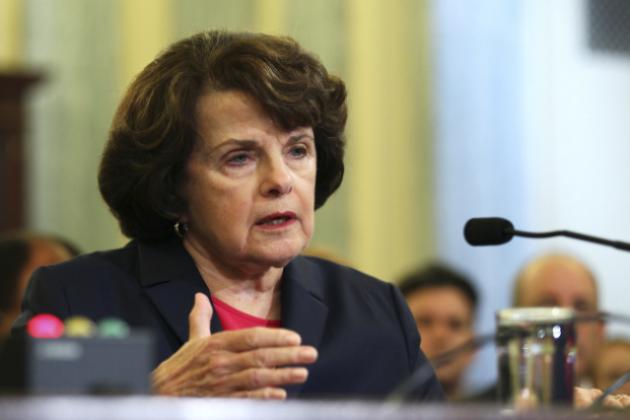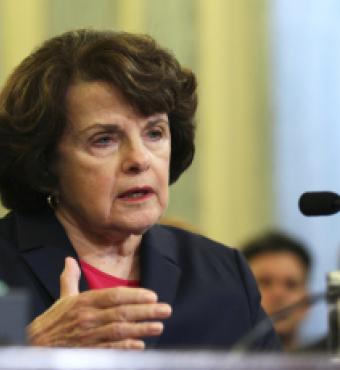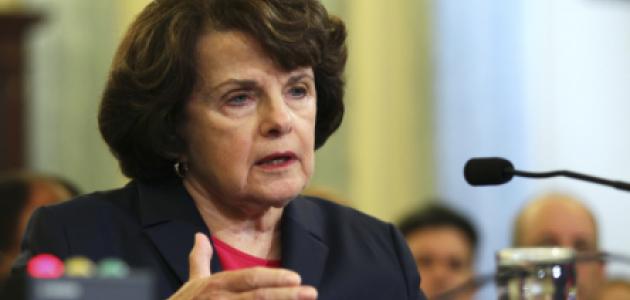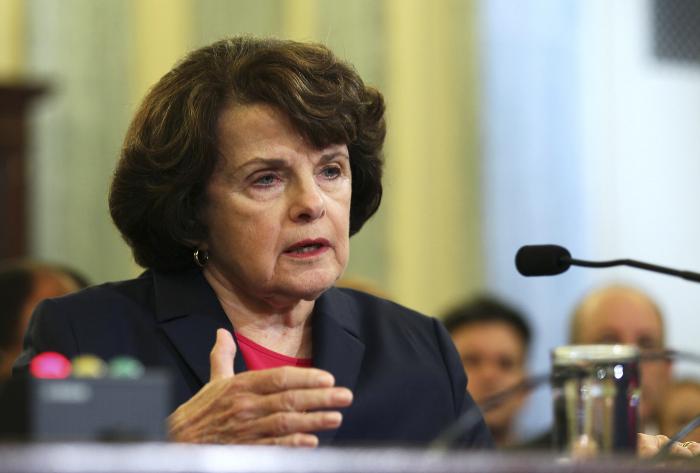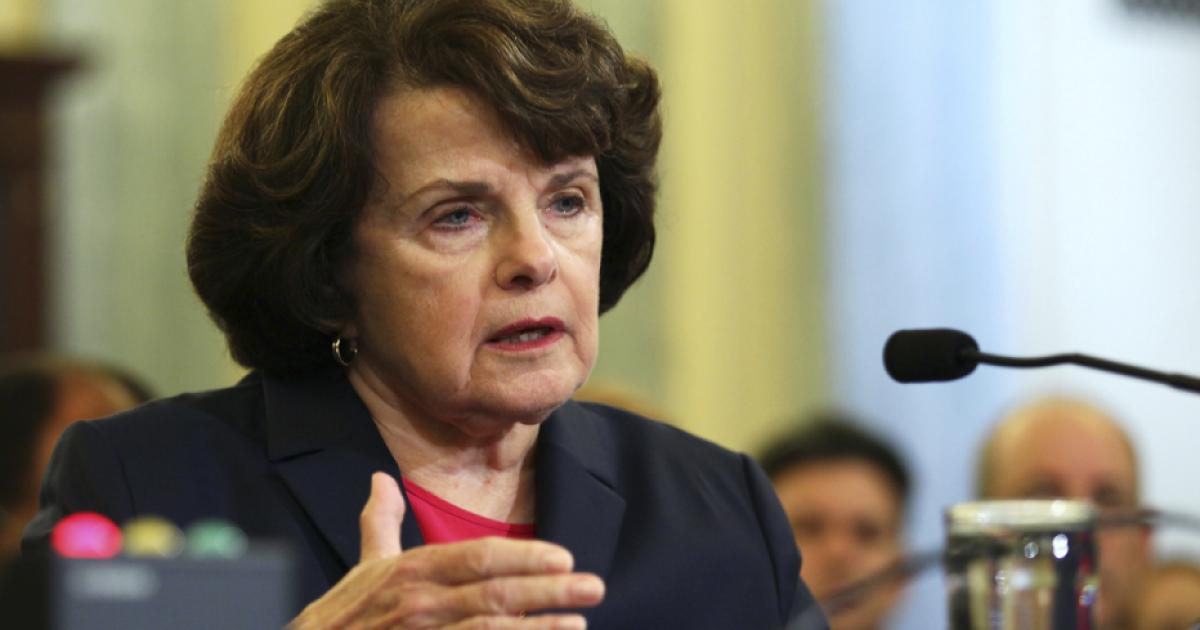It makes sense that the rocker Neil Young, though Canadian by birth, likes to reside in California (for years, he could be seen at professional hockey games in San Jose).
It was Young who lent the title “Rust Never Sleeps” to an album he released back in the late 1970s. That’s one way to look at California politics: like rust, election cycles never sleep. Or so we were reminded earlier this month when congresswoman Katie Porter announced that she intends to run in the Golden State’s next US Senate primary, which is 16 months in the future.
Yes, Porter took a page straight out of the campaign playbook, which dictates that it’s usually best to get a jump on potential rivals (one reason why Donald Trump has announced his presidential candidacy for 2024). In this case, at least two fellow House Democrats are looking at the race.
But there’s a problem with Porter’s move. She made it without knowing the future intentions of Dianne Feinstein, who has represented the Golden State in the Senate since 1992 and may or may not run in 2024 (Feinstein will turn 91 the same month as that year’s June primary). Nor did Porter give Feinstein the courtesy of a heads-up that she wants the senator’s job).
Announcing a primary run—and creating the possibility of a bitter intraparty fight, as Porter did—when a very senior incumbent has yet to decide her political future? That’s sorta like going into an elderly relative’s home and tagging what possessions you plan to inherit . . . while said relative still has a pulse.
In other words: it’s tacky.
Feinstein’s 2024 decision is a favorite guessing game in California political circles these days, with the expectation that she’ll retire after three decades in the nation’s capital (at present, only Iowa’s Charles Grassley and Kentucky’s Mitch McConnell have served longer).
But age isn’t the only variant factoring into Feinstein’s decision. There’s also a question of productivity. A quick review of Feinstein’s official Senate biography shows a laundry list of accomplishments dating back to the early days of the Clinton administration. But there’s nothing in the way of highlighted milestones since 2017, other than noting that she was the first woman to serve as the lead Democrat on the Senate Judiciary Committee. Add the occasional story about Feinstein’s cognitive health and retirement would seem the likely choice.
Here, I have two thoughts.
First, how much more civilized it would be if Porter and other hyperambitious California Democrats had the courtesy of letting the senator make the first move.
Such was the case back in 2017 and the last time California experienced the same Feinstein intrigue. She announced her reelection run in October of that year. Six days later, fellow Democrat and California State Senate leader Kevin de Leon jumped into the race.
Fast-forward now to 2023. Porter’s announcement opens the door for other Democrats to pile into the Senate primary, regardless of Feinstein’s eventual decision (thanks to California’s open primary rules, which dictates the top two vote-getters advance to November regardless of partisan affiliation, two Democrats could face off in the general election, as was the case in California’s 2018 and 2016 Senate contests).
Which takes us to a second concern should there be an open Senate seat in California in 2024: the possibility of a wretched cast of characters on the Democratic side of the ledger.
That begins with Porter. If news accounts are to believed, the Orange County Democrat is an abusive, racist boss (granted, the allegations come from past employees who may have an axe to grind). Among the congresswoman’s detractors: a former aide (a navy veteran and Wounded Warrior fellow in Porter’s office) who alleges that her former employer accused the aide of infecting Porter with COVID-19 and banned her from the congressional office for the remainder of her fellowship.
Add to that: Porter’s disdain for her Republican colleagues in the House of Representatives. While McCarthy and the GOP caucus went 15 rounds deciding who’ll be the next speaker, Porter sat in the House chamber reading a book titled The Subtle Art of Not Giving a F***.
Clever? Perhaps. But it’s not the sort of stunt politics that would play in the (theoretically) more dignified US Senate where members (again, theoretically) are expected to act in a more dignified manner than in the more raucous, populist House.
The same concern over “stunt” politics applies to another Senate candidate: congressman Adam Schiff, who declared his candidacy as this column went online.
On paper, Schiff would seem an appropriate successor to Feinstein—he’s a past House Intelligence Committee chair, whereas Feinstein once held the same job on the Senate side.
But how to square that with past Schiff choices that hardly speak to Senate decorum—i.e., his lobbying Twitter to censor a journalist and other critics (a Twitter employee responded, “No, this isn’t feasible, we don’t do this”), plus the congressman’s insistence that he could prove Trump’s 2016 presidential campaign colluded with Russia (“You can see evidence in plain sight on the issue of collusion, pretty compelling evidence. There is a difference between seeing evidence of collusion and being able to prove a criminal conspiracy beyond a reasonable doubt.”)? The problem with that allegation: a special prosecutor’s investigation found no such collusion.
As for that third House Democrat looking at a Senate run, the concern with congresswoman Barbara Lee (a day after Porter’s announcement, she signaled to colleagues that she’s running as well) would be foreign-policy judgment.
Let’s go back two decades to the aftermath of the 9/11 attack on America. On September 14, 2001—three days after the terrorist events—Lee and her House colleagues debated the merits of House Joint Resolution 64 and the authorization for the use of military force in Afghanistan. The Senate equivalent cleared that chamber on a 98–0 vote. In the House, the vote was 420–1 in favor, with Lee the lone dissenter.
Two decades after that vote, Lee is hailed in some progressive circles as a courageous national-security savant for her ongoing criticism of prolonged American involvement in Afghanistan.
Lee’s observation during that floor vote: “However difficult this vote may be, some of us must urge the use of restraint. Our country is in a state of mourning. Some of us must say, let’s step back for a moment. Let’s just pause, just for a minute and think through the implications of our actions today, so that this does not spiral out of control.”
Which raises the question: Were Lee to succeed Feinstein, would that set the stage for her becoming the Senate equivalent of Jeanette Rankin, a dedicated pacifist and the first woman elected to Congress? Rankin, who served two nonconsecutive terms, owns the distinction of voting against American war declarations in 1917 and 1941 (that latter declaration clearing the House on a 388–1 vote).
Should those three House Democrats collide, it would resemble California’s 1992 Senate primary and the race to succeed the retiring Alan Cranston (he was 77 at the time). That primary featured three prominent California Democrats, two of whom came from the House of Representatives—Barbara Boxer and Mel Levine—plus then lieutenant governor Leo McCarthy).
Boxer would go on to serve 24 years in the Senate before retiring and giving way to Kamala Harris. Depending on one’s political bent, she was seen as feisty or an irritant. You might recall her “could you say senator instead of ma’am?” moment when dressing down an Army Corps of Engineers general. She also questioned Condoleezza Rice’s personal integrity during the latter’s confirmation for secretary of state (Boxer being one of 13 senators to oppose Rice, while Feinstein sided with 84 senators in support).
Such could be the norm in a post-Feinstein California if a House bomb-thrower takes her place in the Senate: a successor skilled at being an irritant but not always on the right side of history.







